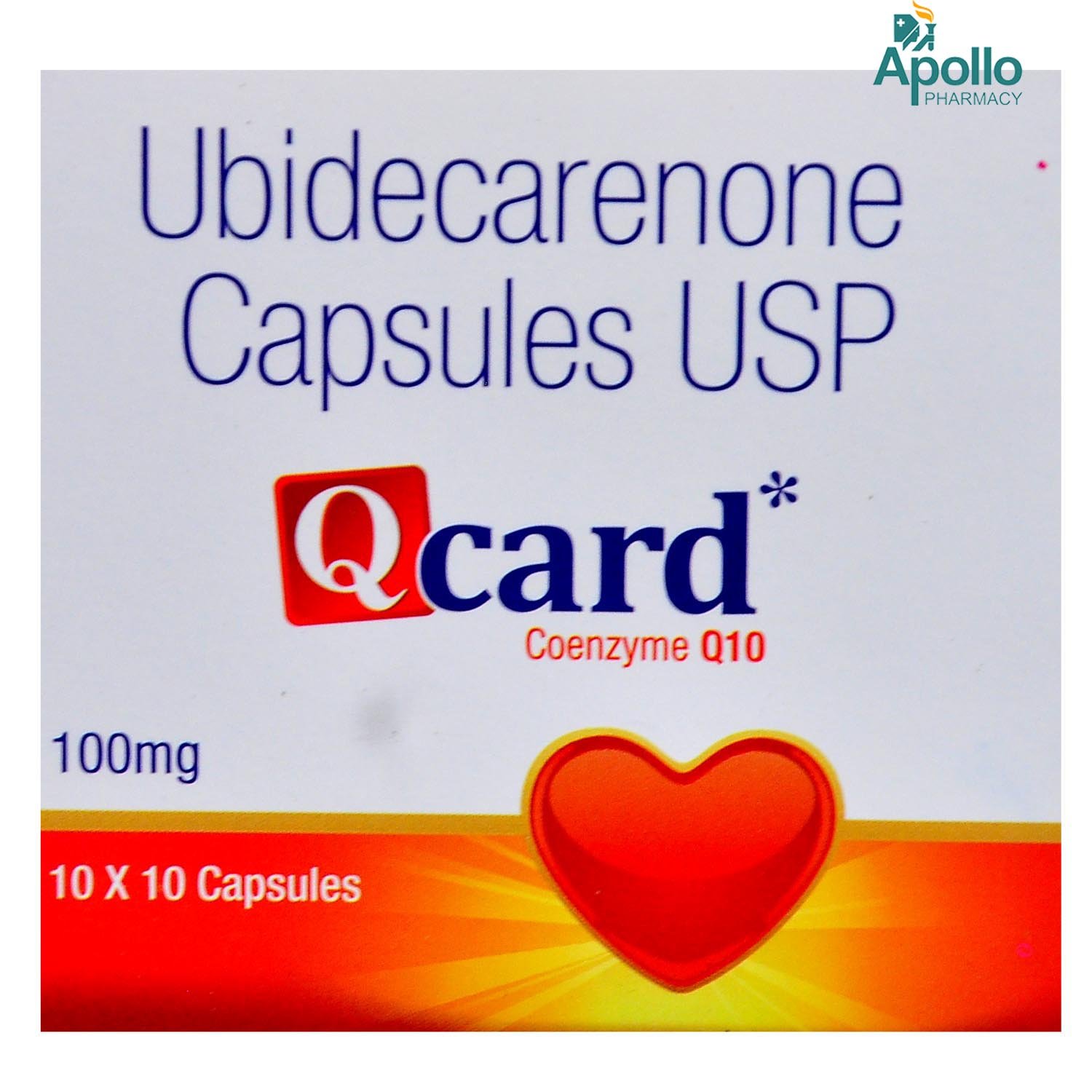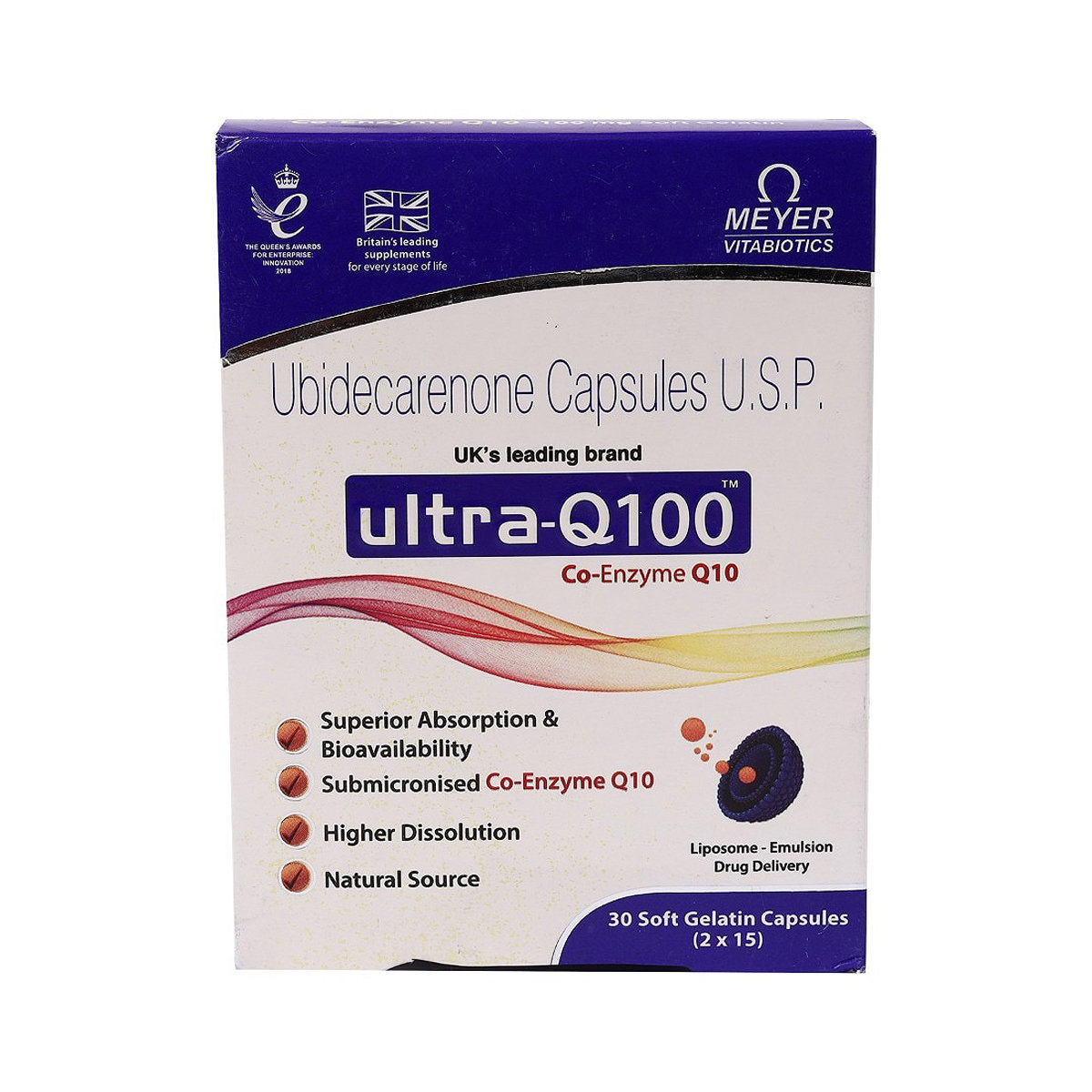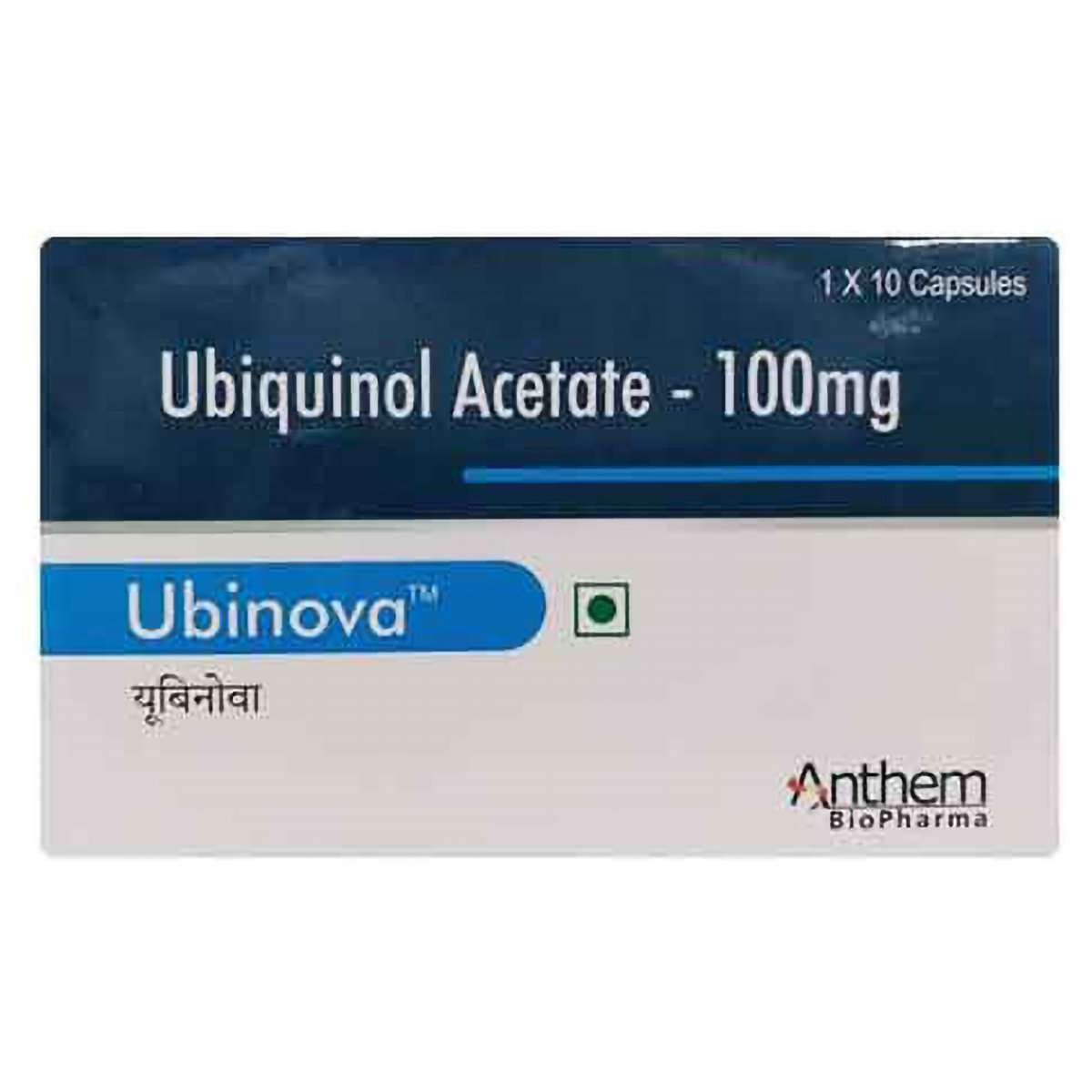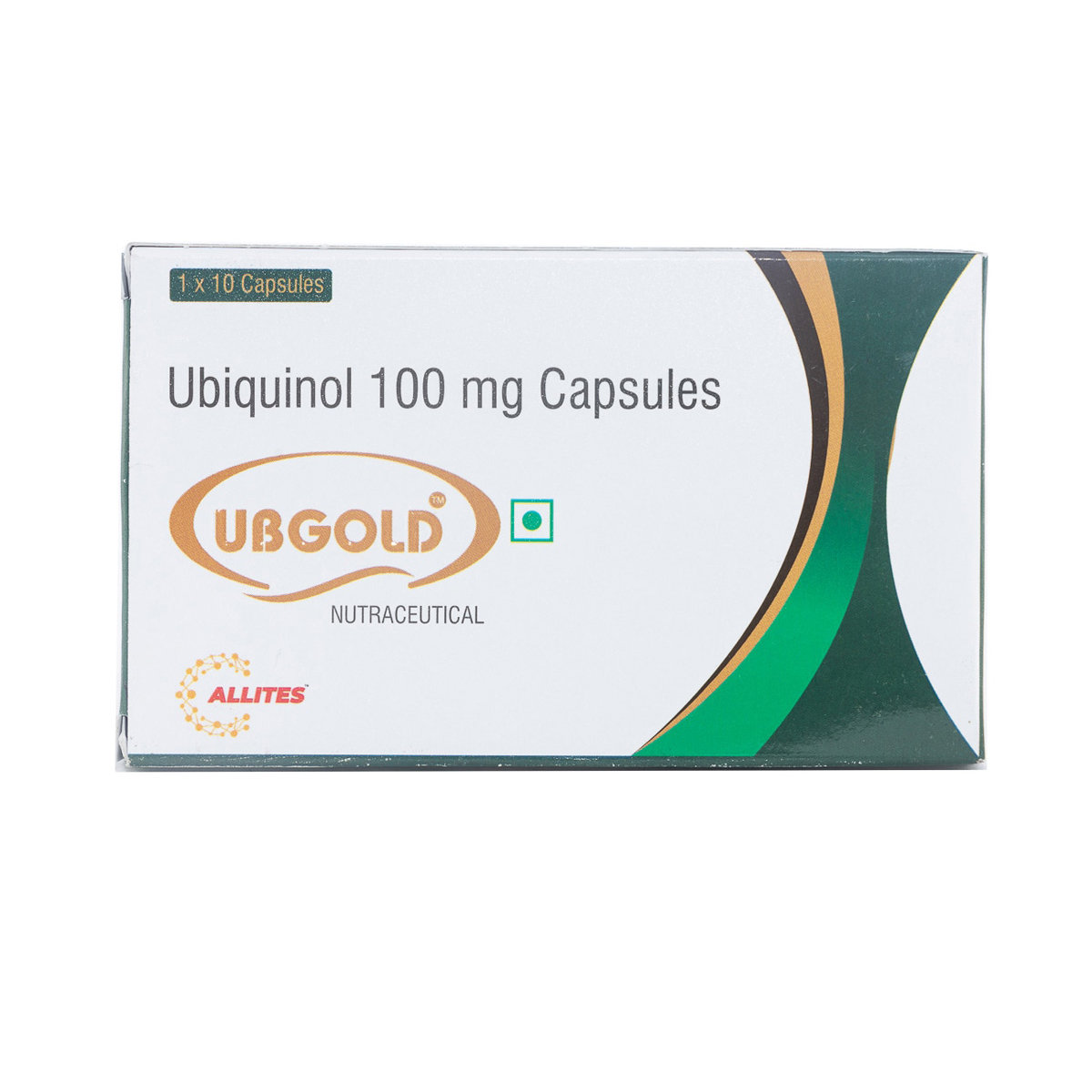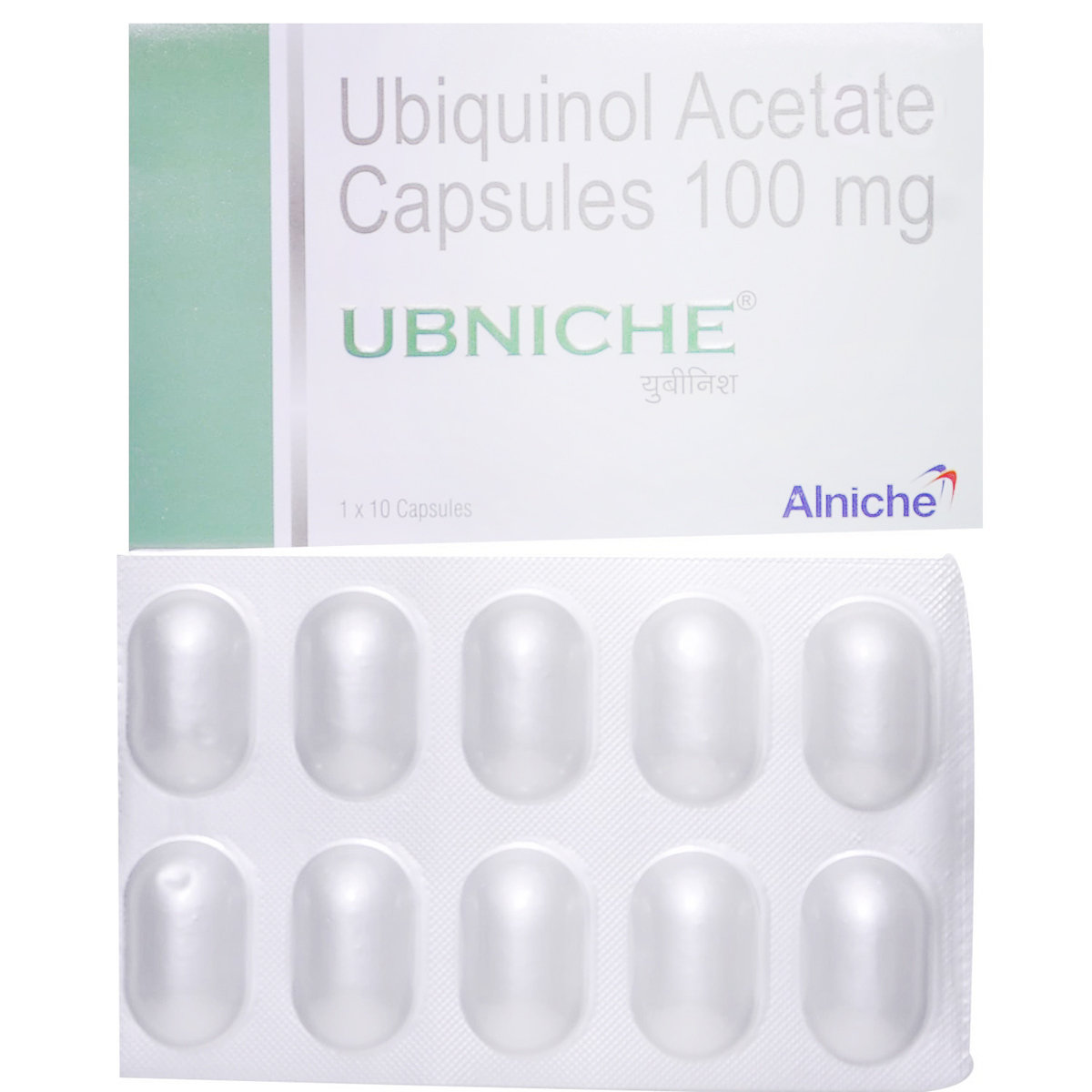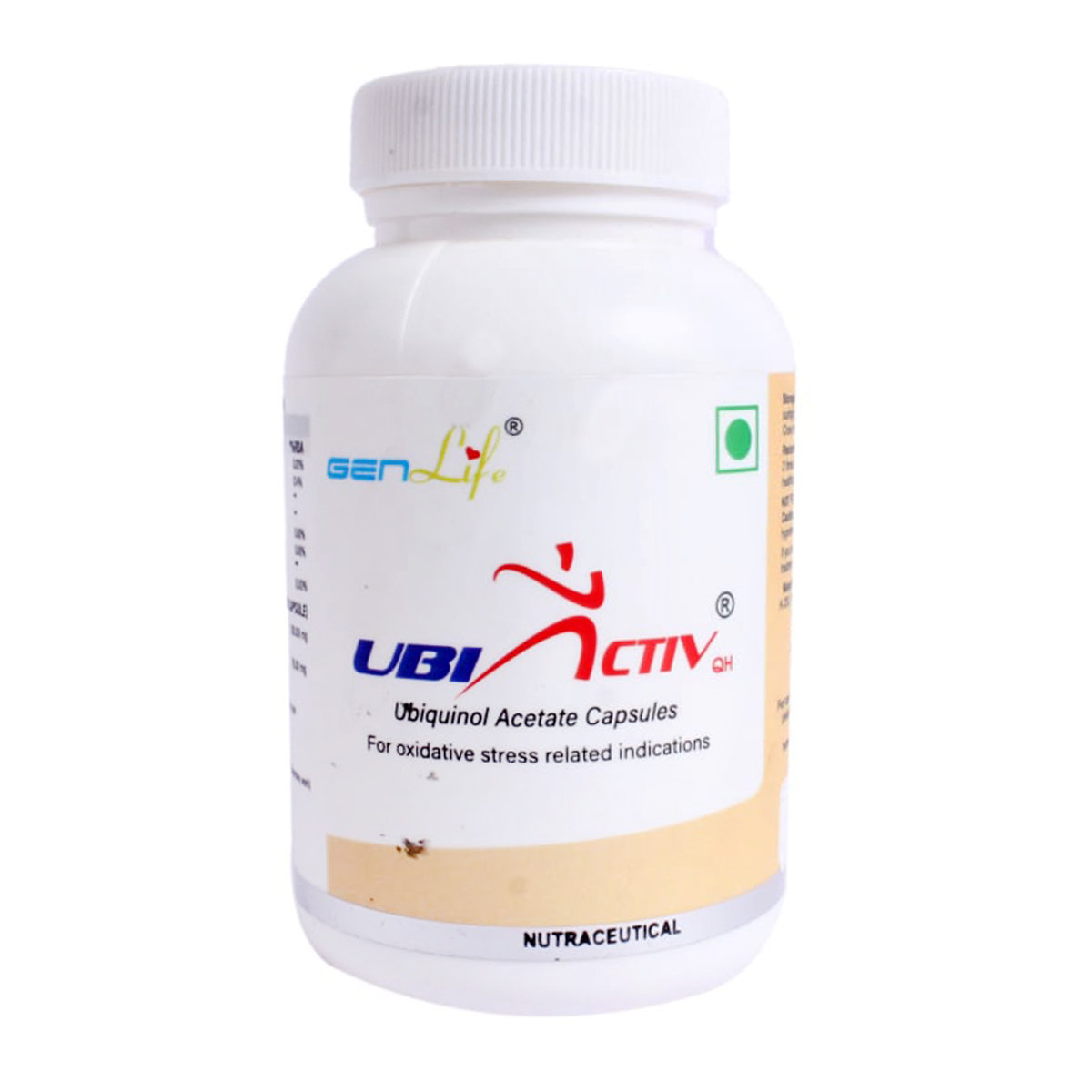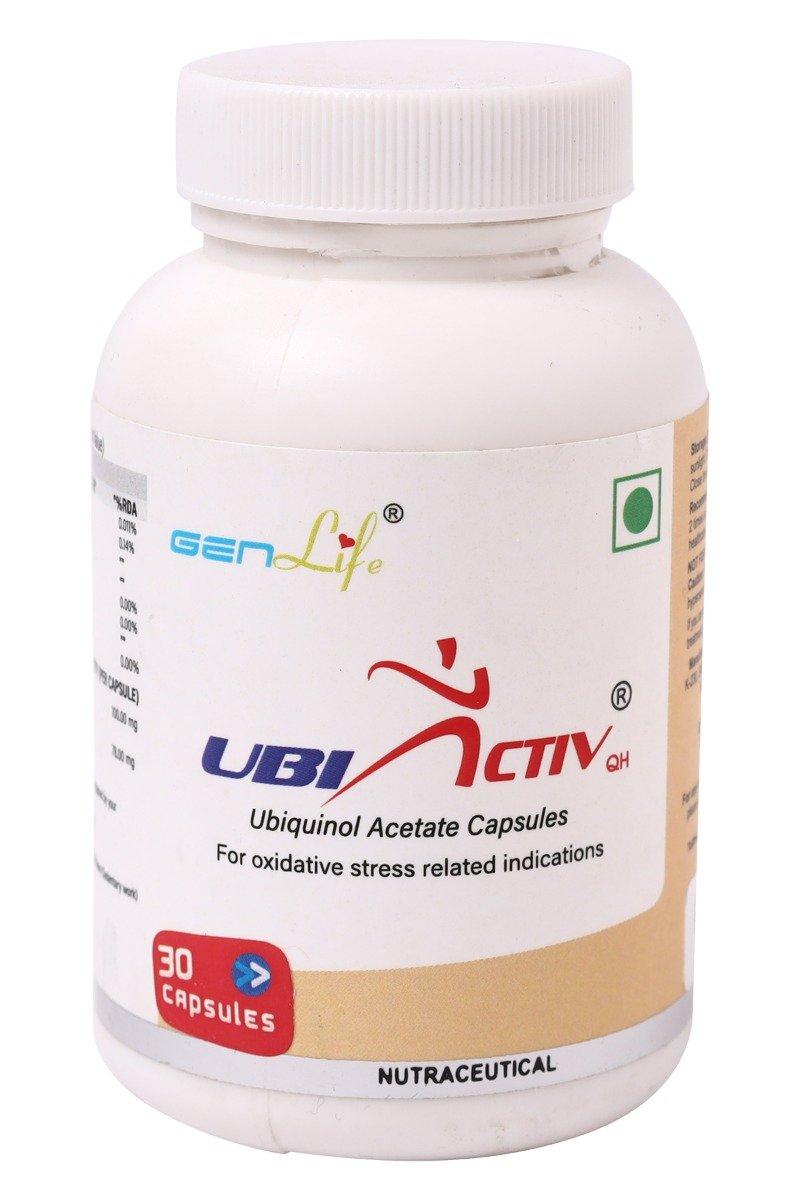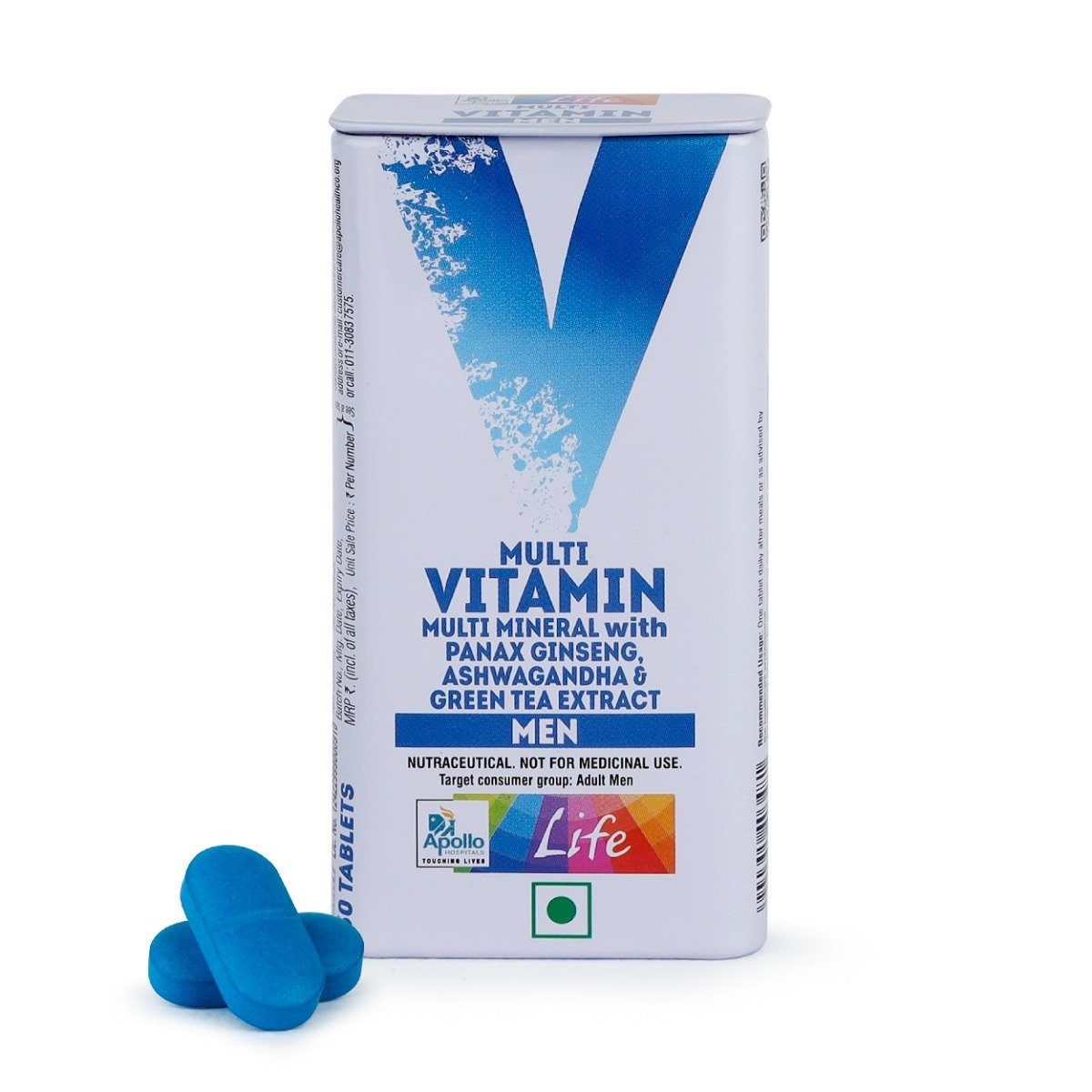Costead 100 mg Capsule
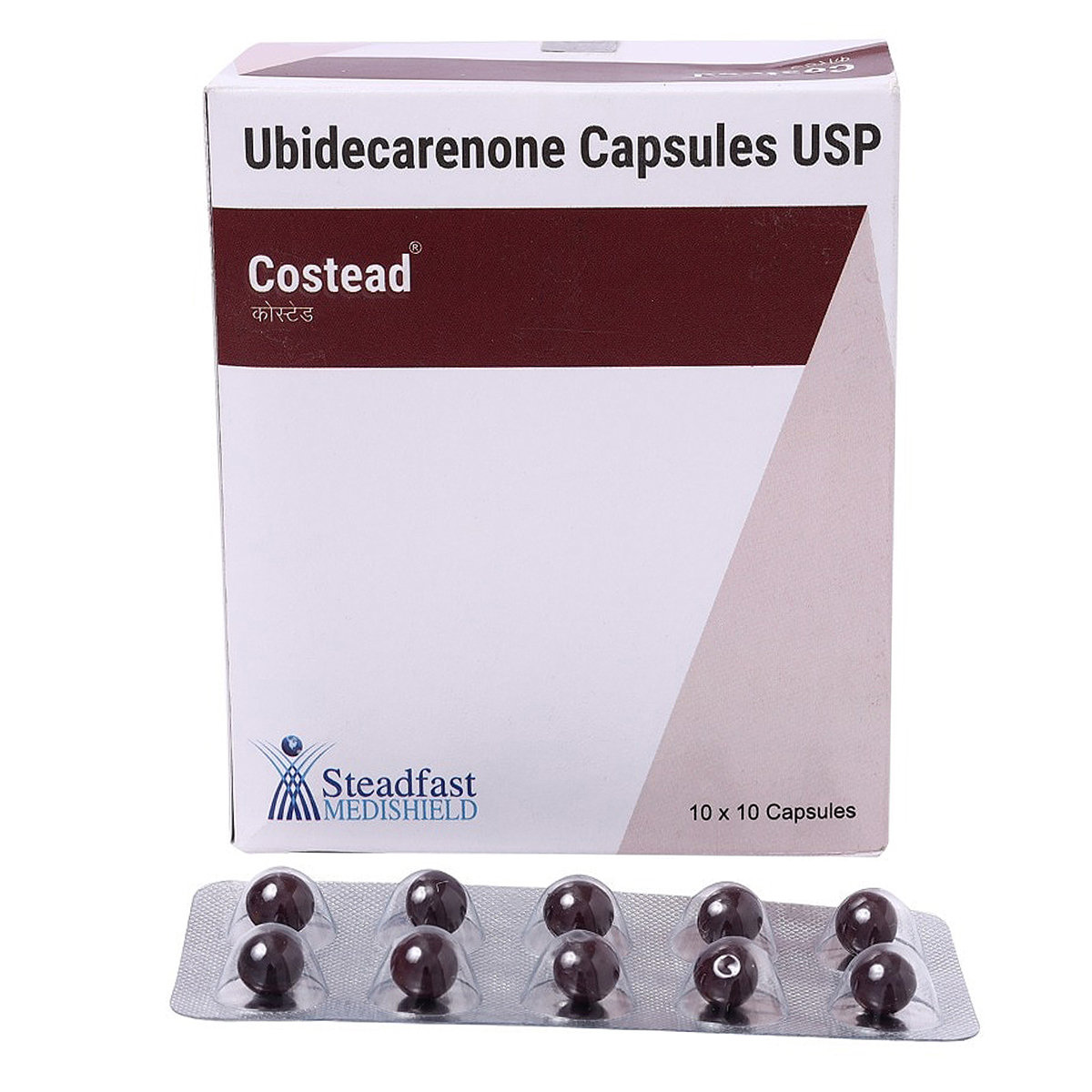
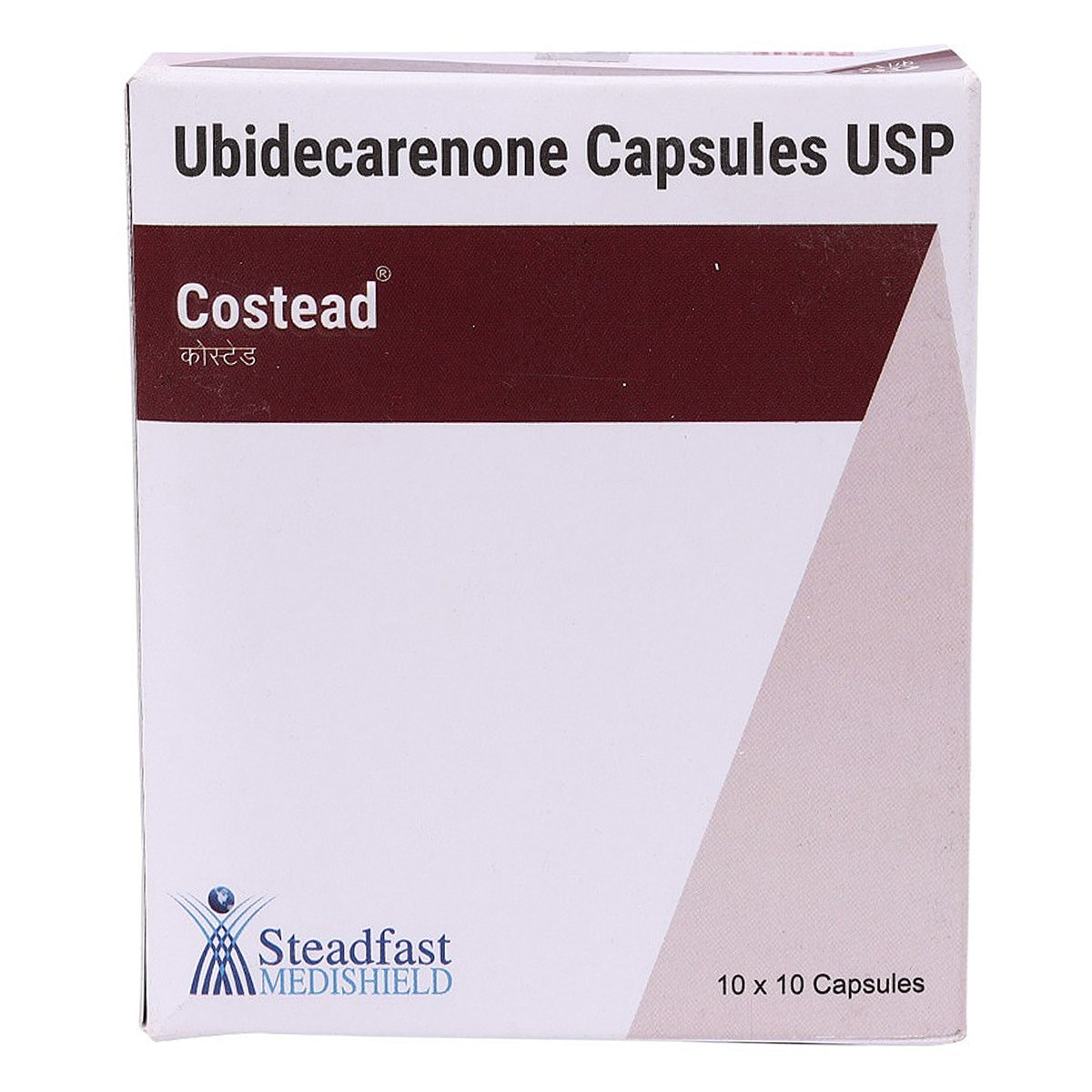
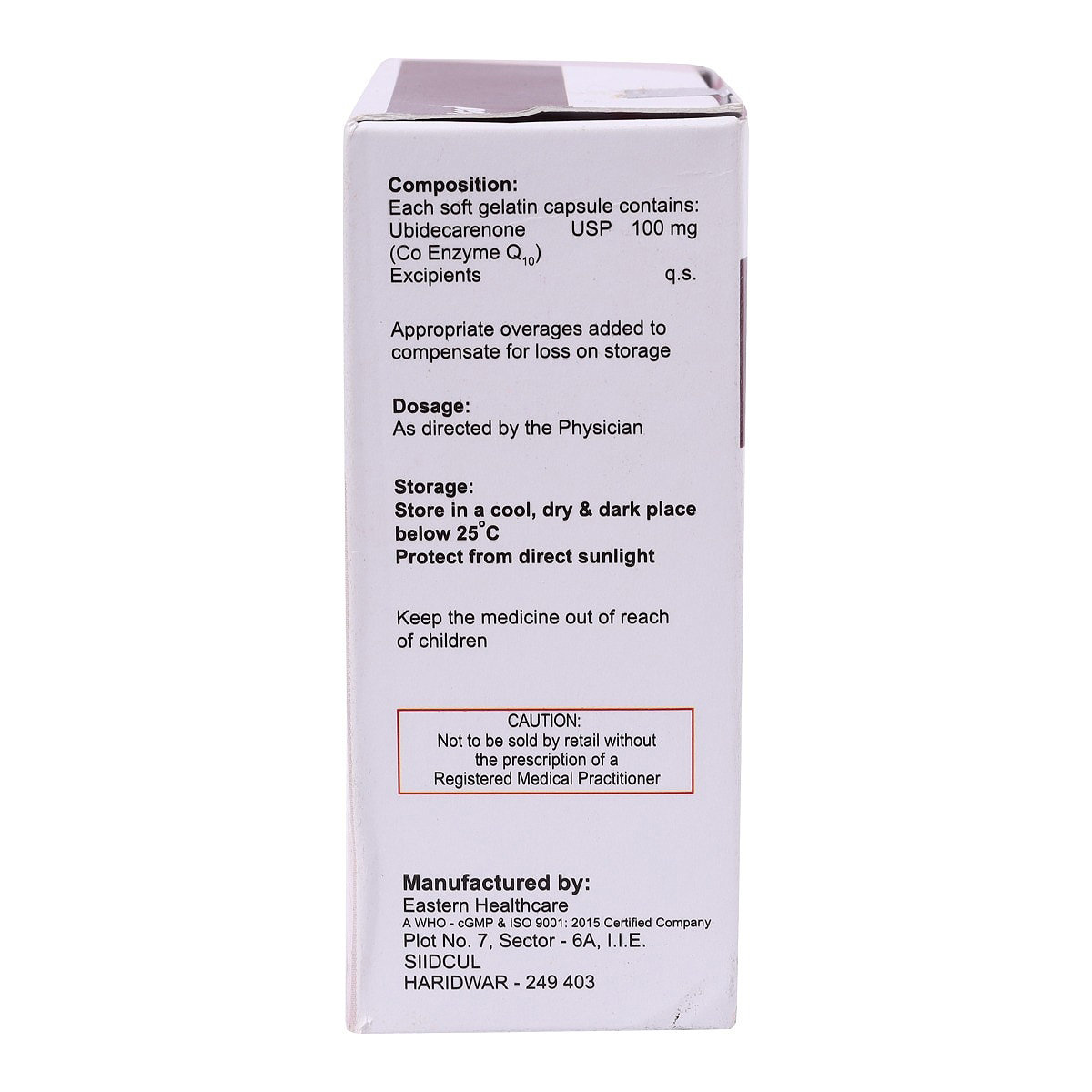
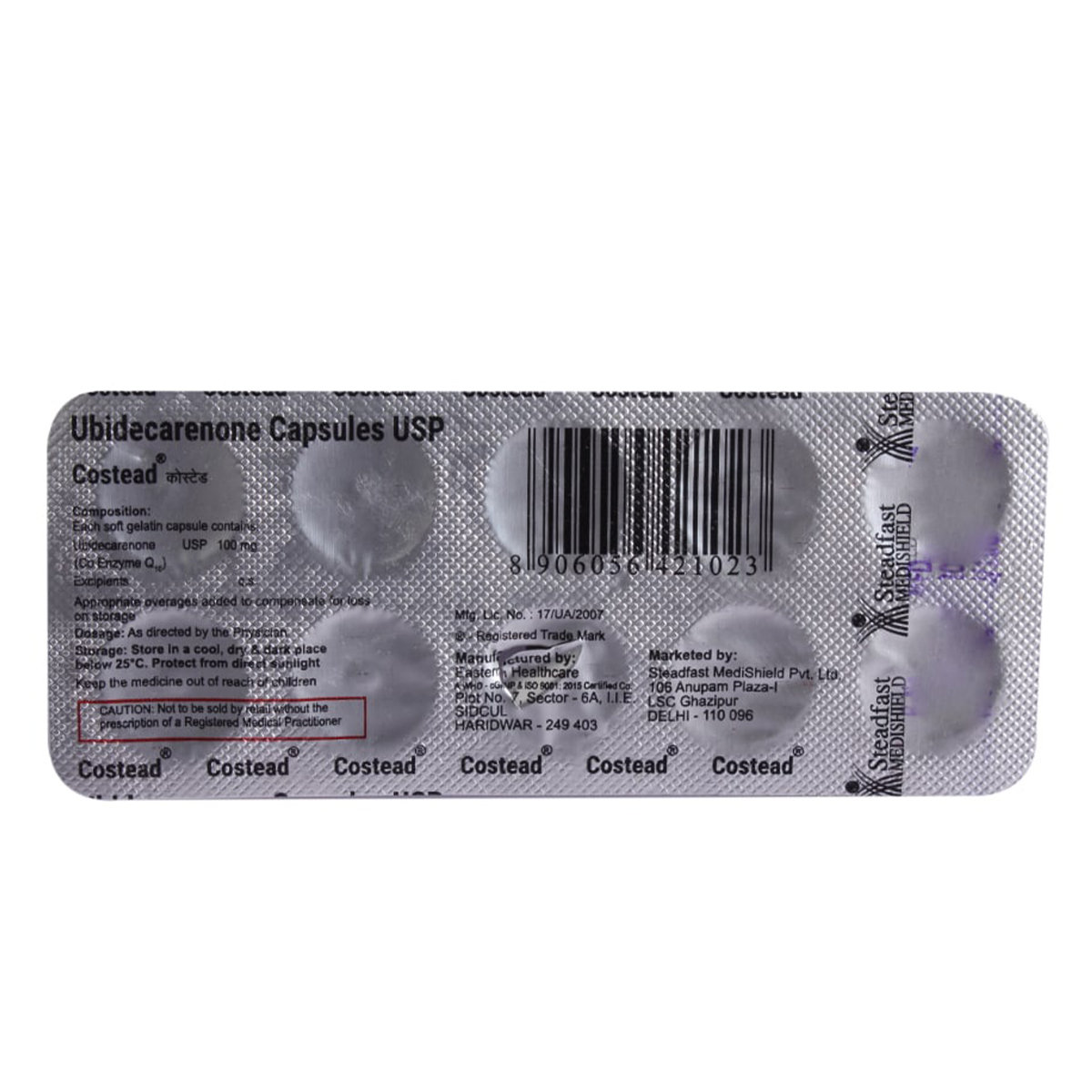
MRP ₹656
(Inclusive of all Taxes)
₹98.4 Cashback (15%)
know your delivery time
Provide Delivery Location
Composition :
Manufacturer/Marketer :
Consume Type :
Expires on or after :
Return Policy :

Secure Payment

Trusted by 8 Crore Indians

Genuine Products
Therapeutic Class
Country of origin
Manufacturer/Marketer address
Author Details
We provide you with authentic, trustworthy and relevant information
Disclaimer
Alcohol
Safe if prescribed
It is not known whether it is safe to consume alcohol with Costead 100 mg Capsule . However, as a precautionary measure, it is advisable to avoid/limit alcohol consumption.
Pregnancy
Consult your doctor
Costead 100 mg Capsule is considered to be possibly safe to use during pregnancy. However, do not use this product without medical advice if you are pregnant.
Breast Feeding
Consult your doctor
It is not known whether Costead 100 mg Capsule passes into breast milk. Do not use this product without medical advice if you are breastfeeding a baby.
Driving
Safe if prescribed
Costead 100 mg Capsule does not have any reported interaction. Discuss with your doctor if you experience any difficulty.
Liver
Consult your doctor
Limited information is available regarding the usage of Costead 100 mg Capsule in patients suffering from liver impairment. If you have any concerns, please consult your doctor. Your doctor will prescribe only if the benefits outweigh the risks.
Kidney
Consult your doctor
Limited information is available regarding the usage of Costead 100 mg Capsule in patients suffering from kidney impairment. If you have any concerns, please consult your doctor. Your doctor will prescribe only if the benefits outweigh the risks.
Children
Safe if prescribed
Limited information is available regarding the usage of Costead 100 mg Capsule in children. Please seek medical advice from your doctor before using Costead 100 mg Capsule .
Product Substitutes
About Costead 100 mg Capsule
Costead 100 mg Capsule belongs to the class of medications called nutritional supplements used to treat various complications or long-term diseases due to Coenzyme Q10 deficiency. Costead 100 mg Capsule may also be used in preventing migraine headaches, preventing a second heart attack, lowering blood pressure, or slowing the progression of early Parkinson's disease. Costead 100 mg Capsule may also be possibly effective in improving symptoms in people with macular degeneration, congestive heart failure, nerve problems caused by diabetes, or muscular dystrophy.
Costead 100 mg Capsule contains Coenzyme Q10 which is also known as Ubidecarenone. It has antioxidant properties and prevents tissue damage, helps fight oxidative stress, slows down the effects of ageing, protects cognitive health, and improves metabolic functions and heart health. Costead 100 mg Capsule helps provide essential nutrients, thereby helps treat nutritional deficiency.
You are advised to take Costead 100 mg Capsule for as long as your doctor has prescribed it for you, depending on your medical conditions. In some cases, Costead 100 mg Capsule may cause certain common side effects like nausea, upset stomach, vomiting, loss of appetite, and diarrhoea. These side effects do not necessitate medical treatment and will fade away with time. However, if these side effects persist, you should seek medical help.
Inform your doctor if you are pregnant or a nursing mother. If you have malabsorption syndrome (difficulty absorbing nutrition from food), history of seizures (fits), liver disease, kidney disease, diabetes, heart problems, please inform your doctor before using Costead 100 mg Capsule . Let your doctor know if you are using any prescription, non-prescription drugs, or herbal products before starting Costead 100 mg Capsule .
Uses of Costead 100 mg Capsule
Medicinal Benefits Mweb
Key Benefits
Costead 100 mg Capsule belongs to the class of medications called nutritional supplements used to treat various complications or long-term diseases due to Coenzyme Q10 deficiency. Costead 100 mg Capsule may also be used in preventing migraine headaches, preventing a second heart attack, lowering blood pressure, or slowing the progression of early Parkinson's disease. Costead 100 mg Capsule may also be possibly effective in improving symptoms in people with macular degeneration, congestive heart failure, nerve problems caused by diabetes, or muscular dystrophy. Costead 100 mg Capsule has antioxidant properties and prevents tissue damage, helps fight oxidative stress, slows down the effects of ageing, protects cognitive health, and improves metabolic functions and heart health. Costead 100 mg Capsule helps provide essential nutrients, thereby helping treat nutritional deficiency.
Directions for Use
Side Effects of Costead 100 mg Capsule
- Nausea
- Upset stomach
- Vomiting
- Loss of appetite
- Diarrhoea
Drug Warnings
If you are known to be allergic to Costead 100 mg Capsule or any other medicines, please tell your doctor. If you are pregnant or a nursing mother it is advised to consult a doctor before using Costead 100 mg Capsule . If you have malabsorption syndrome (difficulty absorbing nutrition from food), a history of seizures (fits), liver disease, kidney disease, diabetes, or heart problems, please inform your doctor before using the Costead 100 mg Capsule . Let your doctor know if you are using a prescription, non-prescription drugs, or herbal products before starting Costead 100 mg Capsule .
Drug-Drug Interactions
Drug-Drug Interactions
Login/Sign Up
Drug-Food Interactions
Drug-Food Interactions
Login/Sign Up
Drug-Diseases Interactions
Drug-Diseases Interactions
Login/Sign Up
Drug-Drug Interactions Checker List
- ANISINDIONE
- DICUMAROL
- WARFARIN
Habit Forming
Diet & Lifestyle Advise
- Choose foods that are high in nutrients, such as fruits, vegetables, and whole grains.
- Replace fatty protein sources with lean alternatives and consume small amounts of healthy fat sources for optimum health.
- Your diet should contain vegetables, fruits, whole grains, legumes, omega-3-rich foods, and lean protein sources.
- Instead of saturated and trans fats, use monounsaturated and polyunsaturated fats (fish, nuts, and vegetable oils).
- Choose/prepare foods and beverages with fewer added sugars/caloric sweeteners.
- Limit your daily salt intake to no more than 2,300 mg.
All Substitutes & Brand Comparisons
RX
Out of StockCO Q10 Capsule 30's
Sanofi India Ltd
₹26.95
(₹0.81 per unit)
98% CHEAPERRX
Qcard Capsule 10's
Aristo Pharmaceuticals Pvt Ltd
₹157
(₹14.14 per unit)
76% CHEAPERRX
Out of StockVitasonic Q-100 Capsule 10's
Uth Healthcare Pvt Ltd
₹293
(₹26.37 per unit)
55% CHEAPER

Have a query?
Buy best Health & Nutrition products by
Vlado Sky Enterprise Pvt Ltd
Abbott India Ltd
Sun Pharmaceutical Industries Ltd
Apollo Healthco Limited
Zydus Healthcare Ltd
Macleods Pharmaceuticals Ltd
West Coast Pharmaceuticals Pvt Ltd
Intas Pharmaceuticals Ltd
Mankind Pharma Pvt Ltd
Meyer Organics Pvt Ltd
Emcure Pharmaceuticals Ltd
Lupin Ltd
Alkem Laboratories Ltd
Nutritionalab Pvt Ltd
Eris Life Sciences Ltd
Akumentis Healthcare Ltd
British Biologicals
La Renon Healthcare Pvt Ltd
Cipla Ltd
Micro Labs Ltd
Zuventus Healthcare Ltd
Torrent Pharmaceuticals Ltd
Pharmed Ltd
Dr Reddy's Laboratories Ltd
Modi Mundipharma Pvt Ltd
Corona Remedies Pvt Ltd
Hindustan Unilever Ltd
Indchemie Health Specialities Pvt Ltd
Apex Laboratories Pvt Ltd
Koye Pharmaceuticals Pvt Ltd
Leeford Healthcare Ltd
Bioceutics Inc
East West Pharma India Pvt Ltd
Alniche Life Sciences Pvt Ltd
FDC Ltd
Alembic Pharmaceuticals Ltd
Aristo Pharmaceuticals Pvt Ltd
DR Johns Lab Pharma Pvt Ltd
Herbs Nutriproducts Pvt Ltd
Guardian Healthcare Services Pvt Ltd
Vasu Organics Pvt Ltd
Pulse Pharmaceuticals
Fourrts India Laboratories Pvt Ltd
TTK Healthcare Ltd
Raptakos Brett & Co Ltd
USV Pvt Ltd
Glanbia Performance Nutrition India Pvt Ltd
Morepen Laboratories Ltd
Innovcare Life Sciences Pvt Ltd
Linux Laboratories Pvt Ltd
Troikaa Pharmaceuticals Ltd
Cadila Pharmaceuticals Ltd
Bright Lifecare Pvt Ltd
Wockhardt Ltd
Sanofi India Ltd
Primus Remedies Pvt Ltd
Zydus Cadila
Kellogg India Pvt Ltd
Tablets India Ltd
Indoco Remedies Ltd
Medley Pharmaceuticals Ltd
Overseas Health Care Pvt Ltd
Procter & Gamble Health Ltd
Shri Balaji Overseas
Dabur India Ltd
Ordain Health Care Global Pvt Ltd
Systopic Laboratories Pvt Ltd
Ajanta Pharma Ltd
Daris Biocare
Health & Happiness (H&H) Trading India Pvt Ltd
Hexagon Nutrition Pvt Ltd
Nutricia International Pvt Ltd
Zee Laboratories Ltd
Aareen Healthcare Pvt Ltd
Aeronutrix Sports Products Pvt Ltd
Emami Ltd
Radicool Pharmaceuticals Pvt Ltd
Wanbury Ltd
Biovitamins Pvt Ltd
Cadila Healthcare Ltd
Esmatrix Life Sciences Pvt Ltd
Ipca Laboratories Ltd
Klm Laboratories Pvt Ltd
Lloyd Healthcare Pvt Ltd
Sain Medicaments Pvt Ltd
Septalyst Lifesciences Pvt Ltd
Tas Med India Pvt Ltd
Wallace Pharmaceuticals Pvt Ltd
Biorex Healthcare Pvt Ltd
Elbrit Life Sciences Pvt Ltd
Levin Life Sciences Pvt Ltd
Panacea Biotec Ltd
Adret Retail Pvt Ltd
Cipla Health Ltd
Delcure Life Sciences Ltd
Femura Pharmaceuticals Pvt Ltd
Gladstone Pharma India Pvt Ltd
GlaxoSmithKline Consumer Healthcare Ltd
Kepler Healthcare Pvt Ltd
Ronyd Healthcare Pvt Ltd
SPECIALITY SUPPLEMENT
CALCIUM
IRON
VITAMIN D
COLLAGEN
VITAMIN B12
VITAMIN C
FISH OIL OMEGA
VITAMIN B
MULTIVITAMIN
Adult Nutrition Drink
ZINC
SEXUAL HEALTH SUPPLEMENT
WHEY PROTEIN
Kids Nutrition Drink
VITAMIN B9
ENERGY DRINK
SPECIALITY NUTRITION DRINK
DRY FRUIT
HERBAL JUICE
VITAMIN E
Prebiotic & Probiotic
ORS
SUGAR SUBSTITUTE
WOMEN & MOTHER NUTRITION DRINK
Chyawanprash
MAGNESIUM
Protein Bar
BREAKFAST CEREAL
Protein Powder
BIOTIN
DIABETIC NUTRITION DRINK
Honey
WEIGHT LOSS
Fat Burner
PLANT PROTEIN POWDER
VITAMIN B1
Apple Cider Vinegar
MELATONIN
APPETITE STIMULANT
Meal Replacement
Peanut Butter
AMINO ACID
Flax seed Oil
INFUSION TEA
NUT & SEED
Ashwagandha
Instant Food
OATS
Olive Oil
Mass Gainer
Pre Workout
CURCUMIN
POTASSIUM
VITAMIN A
DISKETTE
L-Carnitine
Cod Liver Oil
CREATINE
MILLETS & CEREALS
VITAMIN B6
ARGININE
COENZYME Q10
Shilajit
Appetite Suppressant
Chromium
MILK THISTLE
Glutathione
VITAMIN B2
VITAMIN K
L-Glutamine
MORINGA
GARCINIA CAMBOGIA
GREEN TEA
SPIRULINA
ALPHA-LIPOIC ACID
GLUCOSAMINE
GOKSHURA
BCAA Protein Powder
GILOY
NEEM
SAFFRON
SELENIUM
TRIPHALA
Tulsi
VITAMIN B3
VITAMIN B5
Brahmi
CANDIES
FRUIT JUICE
Face Gel
Specialty Supplements
WEIGHT GAINER
WHEAT GRASS POWDER
Customers Also Bought


_0.jpg?tr=q-85)

